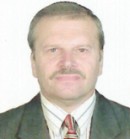|
Plenary
Lecture
Problem of Analog Circuit Optimization as Controllable
Dynamic System

Professor Alexander Zemliak
Dept. of Physics and Mathematics,
Autonomous University of Puebla,
Puebla, MEXICO
Institute of Technical Physics,
National Technical University of Ukraine,
Kiev, UKRAINE
E-mail:
azemliak@yahoo.com
Abstract: One of the principal problems for
designing of large electronic circuit is the problem of
significant reducing of processor time for parametric
circuit optimization. The solution of this problem can
be obtained by means of a generalized approach to the
process of optimization of electronic circuits. The
generalized methodology of circuit optimization can be
constructed on the basis of theory of control. In this
case a special vector of control serves as a principal
tool to redistributing the computer expenses between
circuit analysis and the procedure of parametric
optimization. The optimization of analog circuit is
formulated in this case as a controllable dynamic
system. The optimal structure of the vector of control
gives the minimal-time algorithm of circuit
optimization. The optimal sequence of switching points
of the vector of control solves the problem of
minimal-time algorithm construction. The conception of
the Lyapunov function of the process of optimization
serves as one of the productive ideas to study the main
properties of the time-optimal algorithm. Stability
analysis of each strategy of designing based on
Lyapunov's direct method revealed a strong correlation
between the time of designing and the main indicators of
the design process, namely the Lyapunov function and its
time derivative. This function gives us the possibility
to separate the perspective strategies for the
optimization of circuits. Analysis of behavior of the
Lyapunov function during the optimization process shows
a strong correlation between some characteristics of
this function and a processor time. The strategies that
have the greatest absolute value of the time derivative
of Lyapunov function on the initial phase of the
trajectory of optimization exhibit the greatest
stability and have the least CPU time. This property is
the basis for the constructing a minimal-time algorithm
of designing. This algorithm provides gain of processor
time in hundreds and thousands times as compared to the
traditional approach.
Brief Biography of the Speaker:
Alexander Zemliak received the M.S. degree in electronic
engineering from the Kiev Polytechnic Institute (KPI),
Kiev, Ukraine, in 1972 and in mathematics from the Kiev
University in 1975, and Ph.D. in electronic engineering
from KPI in 1976. He is currently a Professor of Physics
and Mathematics Department, Autonomous University of
Puebla, and a Professor of the National Technical
University of Ukraine KPI too. His research interests
are in computer-aided RF and microwave circuit analysis,
optimal design methodologies, computational
electromagnetics and numerical techniques in the
simulation, analysis and optimization of microwave
devices. He has authored of two books, 7 chapters of
books and over 250 papers in refereed journals and
conference proceedings. From 1986 to 1994 he held some
research grants from Ministry of Superior Education of
Ukraine and industry. From 1998 to 2010 he held some
grants from Mexican National Council of Science and
Technology. He is a member of Ukrainian Scientific
Society, National System of Investigators of Mexico,
Senior Member of IEEE, member of IEICE, WSEAS and New
York Academy of Sciences. He was a chairman of some
international conferences in Mexico, member of technical
program committee of some conferences around the world
and invited lecturer of more than 10 international
conferences. He obtained best paper award at National
SOMI Conference, 1999 (Mexico), International conference
IBERCHIP, 2002 (Mexico), International WSEAS Conference,
2009 (Turkey), International Conference IEEE EWDTS, 2010
(Russia). He was a Reviewer of International Design
Automation Conference-DAC, 20012003, USA; International
Conference on Computing, Communication and Control
Technologies-CCCT, 20042008, USA; World
Multi-Conference on Systemics, Cybernetics and
Informatics, 20032011, USA.
|
